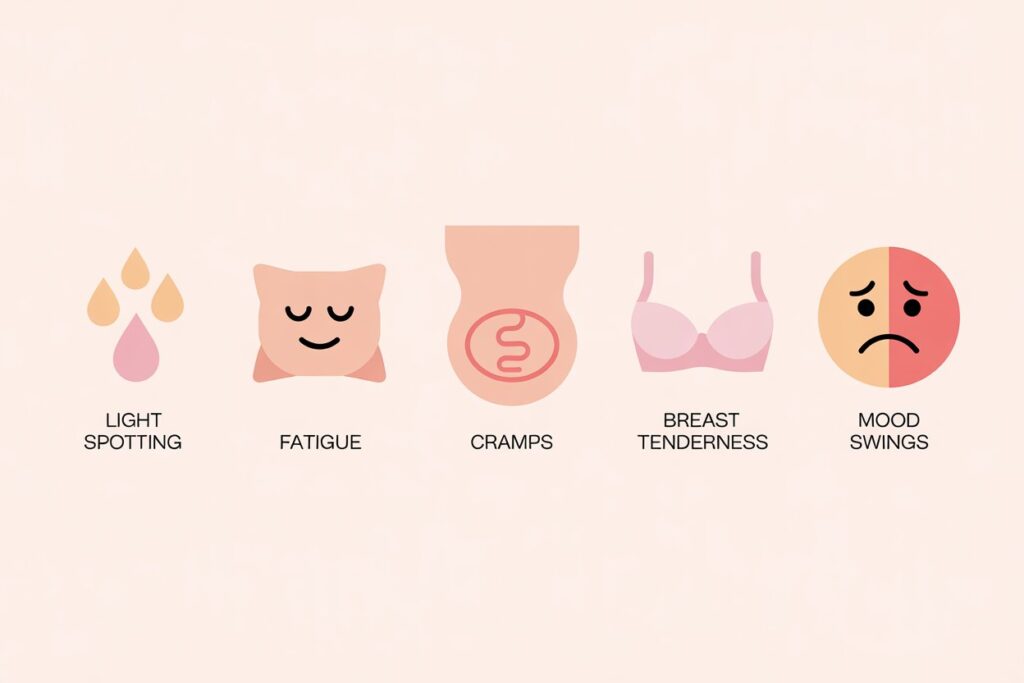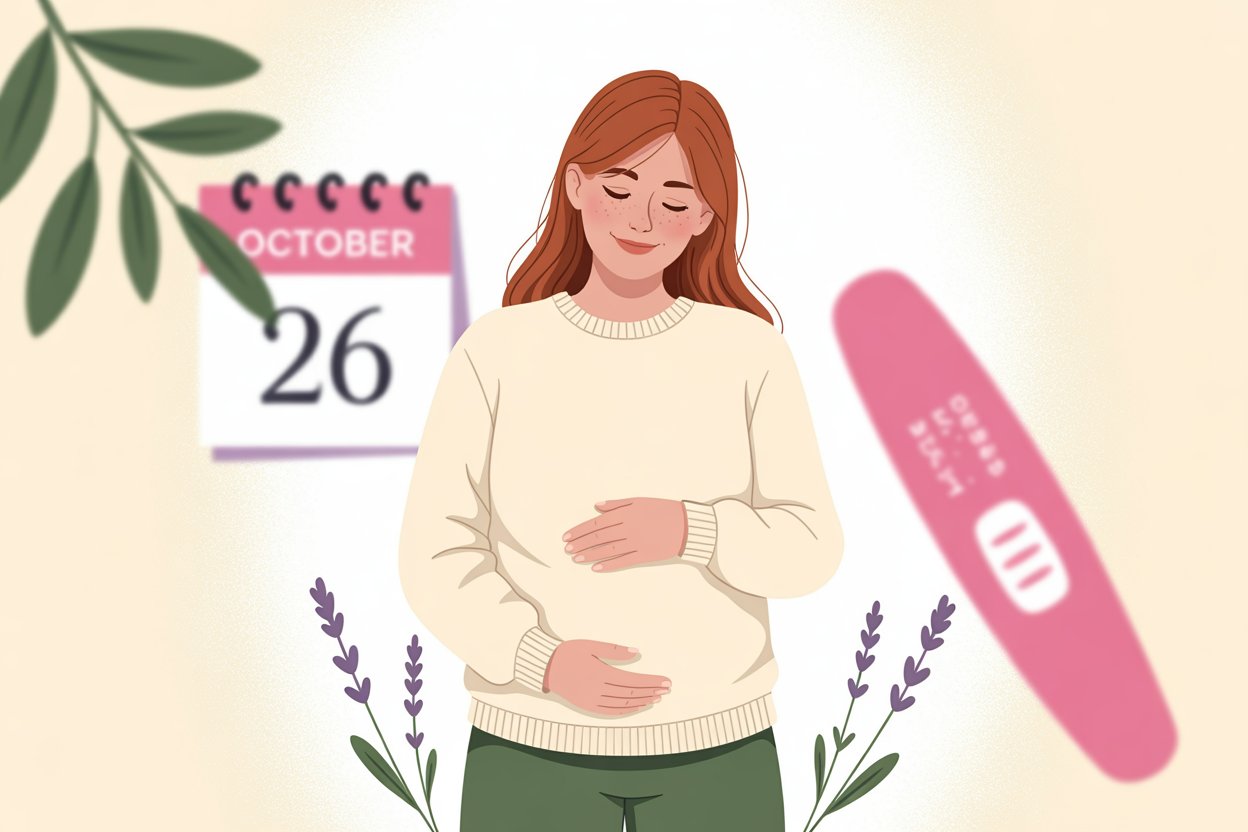Pregnancy is often described as a beautiful journey, but the beginning of it can feel like an emotional rollercoaster. For women who are trying to conceive, every small body change raises a question—Could I be pregnant? One of the most searched phrases is “very early signs of pregnancy at 1 week.”
But is it really possible to notice changes so soon? The answer is yes, but with a little explanation. While some women begin to notice subtle shifts in their body within the first week after conception, others might not feel anything at all until a missed period. Every woman’s body responds differently.
In this article, we’ll break down what “1 week pregnant” really means, what’s happening inside your body, and the very early signs of pregnancy at 1 week that you might notice.
Understanding the Timeline: What Does “1 Week Pregnant” Really Mean?
There’s often confusion when it comes to pregnancy timelines. Doctors calculate pregnancy starting from the first day of your last menstrual period (LMP). By this method, you’re considered “1 week pregnant” even before conception has actually happened.
However, many women use the term to mean the first week after conception—when the sperm has fertilized the egg and the embryo is just beginning to form. According to the American College of Obstetricians and Gynecologists (ACOG), this early stage is critical as your body begins adjusting hormonally to support a possible pregnancy. In this context, “1 week pregnant” refers to those first few days after fertilization, when implantation is beginning or about to happen.
Understanding this helps us make sense of the very subtle signs your body may show in these early days.
What Happens Inside Your Body in the First Week After Conception
When you conceive, an incredible process begins at the cellular level:
- Day 1–2: The sperm fertilizes the egg in the fallopian tube, creating a zygote.
- Day 3–4: This zygote divides into multiple cells, becoming a blastocyst.
- Day 5–7: The blastocyst travels down to the uterus and begins the process of implantation, embedding itself in the uterine lining.
This implantation triggers hormonal changes, particularly an increase in progesterone and estrogen, which are responsible for many of the very early signs of pregnancy at 1 week.
Very Early Signs of Pregnancy at 1 Week
Here are some of the most common indicators women report. Remember, not all women experience these symptoms, and their intensity can vary greatly.

1. Light Spotting or Implantation Bleeding
One of the earliest signs is implantation bleeding, which occurs when the fertilized egg attaches to the uterine wall. Unlike a normal period, this bleeding is usually very light—pinkish or brownish in color—and lasts only a day or two.
It can be easy to mistake this for an early period, but the difference is in its timing and flow. Implantation bleeding generally happens around 6–12 days after ovulation. If you notice unusual spotting that is lighter than your normal cycle, it could be one of the very early signs of pregnancy at 1 week.
2. Mild Abdominal Cramps
Alongside spotting, some women feel mild cramps in the lower abdomen. These cramps are not as painful as period cramps and may feel more like a gentle pulling or tingling sensation. This happens because the uterus is preparing itself for pregnancy and the embryo is settling in.
These early cramps are often mistaken for premenstrual symptoms, but their timing—before your expected period—may give you a hint.
3. Fatigue and Unusual Tiredness
Many women describe extreme tiredness as one of the first clues that something is different. Rising levels of progesterone slow down your body and make you feel more tired than usual. Your body is already working harder, sending nutrients and energy to help support the new pregnancy.
You may find yourself yawning during the day, struggling to finish tasks that normally feel easy, or even needing an extra nap. If fatigue feels out of place, it could be one of those very early pregnancy signs.
4. Breast Tenderness and Changes
Hormonal shifts can make your breasts feel swollen, sore, or unusually sensitive just a week after conception. You might also notice your nipples becoming darker or more prominent. Some women say their bras suddenly feel tighter.
This is often confused with PMS, but if the soreness feels more intense or continues after your expected period date, it may be linked to early pregnancy.
5. Mood Swings and Emotional Changes
If you find yourself laughing one minute and crying the next, hormones may be to blame. Increased levels of estrogen and progesterone can cause emotional ups and downs, very similar to PMS but sometimes stronger.
Some women describe feeling extra sensitive, easily irritated, or suddenly anxious during this first week. These emotional shifts, though subtle, are among the very early signs of pregnancy at 1 week.
6. Bloating and Digestive Issues
Even before a missed period, some women feel bloated or notice changes in digestion. This happens because progesterone slows down the digestive process, leading to gas, constipation, or a heavy feeling in the stomach.
If you suddenly feel bloated despite not overeating, it may be a small signal from your body that changes are underway.
7. Food Cravings and Aversions
Though cravings are more famously associated with later pregnancy, some women experience them surprisingly early. You may suddenly dislike your favorite food or feel an unusual craving for something you normally don’t eat.
Strong aversions to smells, like coffee or spicy food, are also common. These changes are linked to hormonal shifts and heightened sensitivity in your senses.
8. Elevated Basal Body Temperature (BBT)
Women who track their basal body temperature for fertility reasons often notice a sustained rise in temperature after ovulation. If your temperature remains consistently higher for more than 14 days, it may indicate early pregnancy.
This is one of the more scientific ways to spot the very early signs of pregnancy at 1 week, especially if you’ve been monitoring your cycle closely.
9. Frequent Urination
It might sound too soon, but some women notice an increase in bathroom visits even within the first week. This happens because increased blood flow to your kidneys and hormonal changes start affecting how your body processes fluids.
If you find yourself waking up at night to urinate more than usual, it could be an early signal.
10. No Symptoms at All
It’s equally important to mention that some women don’t notice any of these signs in the first week. Every body is unique. Not having symptoms doesn’t mean you’re not pregnant. For many, the first obvious clue is simply a missed period.
How Early Pregnancy Symptoms Differ from PMS
Since PMS and early pregnancy symptoms overlap, it can be tricky to tell them apart. The main differences are:
- PMS symptoms usually ease once your period starts.
- Pregnancy symptoms often continue and may get stronger after a missed period.
- Implantation bleeding is much lighter and shorter than a regular period.
So, if your symptoms feel stronger than usual or continue beyond your expected period, pregnancy may be the reason.
When to Take a Pregnancy Test
At 1 week after conception, it’s often too early for a home pregnancy test to give accurate results. Most tests detect hCG (the pregnancy hormone) in urine, which usually takes 10–14 days to reach detectable levels.
For best results:
- Take a test on the first day of your missed period.
- If you’re eager, you can try an early-detection test around 10 days after ovulation.
- A blood test at a clinic can confirm pregnancy earlier than a urine test.
Final Thoughts
The very early signs of pregnancy at 1 week are subtle, often easy to miss, and different for every woman. While some notice spotting, fatigue, or mood swings, others don’t feel any change until weeks later.
If you’re trying to conceive, the waiting game between ovulation and a missed period can feel endless. The best thing you can do during this time is listen to your body, maintain a healthy lifestyle, and stay patient until you can confirm with a test.
Remember—pregnancy is not defined by one or two symptoms but by the beautiful combination of changes your body goes through. Whether you feel them early or later, the journey ahead is unique, personal, and deeply special.




